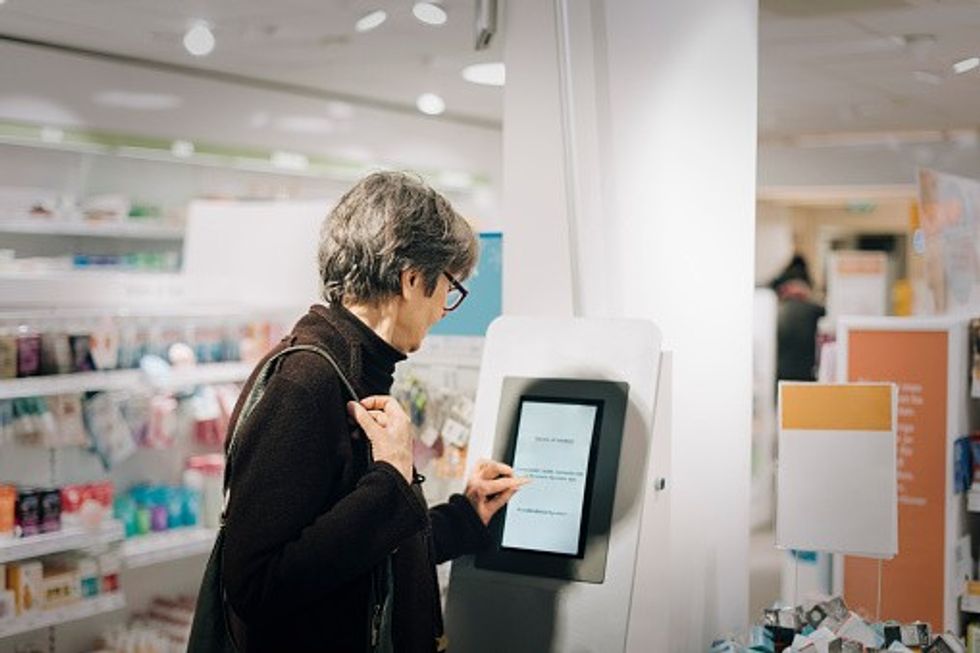Matthew Olsen says community pharmacists are perfectly placed to help people identify lifestyle factors that might be affecting their eye health…
Dry eye disease, also known as dry eye syndrome, occurs when the eye stops producing enough tears, the tears that are made are of poor quality or the tears evaporate faster than they should. This causes dryness and irritation of the surface of the eye and results in inflammation, discomfort, and damage.[i]
Symptoms include dry, red, itchy or tired eyes, blurred vision and foreign body sensation. From over-the-counter eye drops and heated eye masks, to eyelid-cleansing wipes, there are a multitude of options that can be offered to sufferers to provide relief.
As a result of the pandemic and new living and working patterns, the World Health Organization has indicated dry eye disease is on the rise. This can be attributed to various lifestyle factors including increased screen use and wearing of face masks.
An increase in sufferers seeking advice on the condition in pharmacies has also been reported. It is no surprise that sufferers will turn to their pharmacists for help, support and information on the condition and how it can be managed by treatment options available over-the-counter.
Our recent survey showed that nearly half of Brits would use products recommended by a pharmacist; this is likely due to the compassionate nature of pharmacy teams and more recently, trust gained from keeping their doors open during the pandemic.[ii]
Pharmacists are perfectly placed to help people to identify lifestyle factors that might be affecting their eye health, particularly as public awareness of dry eye disease is still low. The survey also showed that awareness of dry eye disease is currently limited, with over a third (36 per cent) of people not able to recognize the symptoms.2
There is especially little understanding amongst the public around causes and risks, including common lifestyle factors and gender, with women over 40 at a higher risk of developing symptoms. When assessing risk, pharmacists must also consider other health factors when presented with cases of dry eye; for instance, studies show links between dry eye and various conditions such as rheumatoid arthritis and diabetes.[iii][iv]
As pharmacists often see dry eye disease patients at the early stages of their condition, typically their role is screening and directing them to the best place and product to manage their symptoms appropriately. However, they are also in prime position to highlight the benefits of early intervention in preventing eye conditions from worsening and the consequences of leaving these untreated.
If, for example, patients knew that early stages of dry eye disease were reversible, perhaps they would be quicker to seek treatment, and this would result in less patients needing further medical intervention.
Although the majority of dry eye disease cases are simple, patients may well need to be referred to their GP or an optometrist. About 78 per cent of people visiting an ophthalmologist have eye disorders which could have been dealt with in a primary care setting, and pharmacists can play a key role in helping to reduce this number.[v]
It is important that pharmacists work across disciplines to establish and effectively treat dry eye disease, while considering the assessment process involved in diagnoses and tailored management plans for treatment.
Working holistically and taking a multi-disciplinary approach can often be the best way forward, as with dry eye disease, it is not always as simple as treating one single element and expecting success.
Not only this, but as dry eye disease research continues to progress, it is vital that pharmacy teams are comfortable educating people on the benefits of preservative-free options, as often patients prefer cheaper alternatives instead.
The long-term consequences of eye drops containing preservatives can be damaging to the health of the ocular surface, particularly in dry eye disease patients. There seems to be somewhat of a disconnect between evidence supporting the use of preservative-free options and clinical practice.
Indeed, NICE guidance recommends preservative free formulations if a patient with dry eye is intolerant to preservatives, requires drops more than four times per day or uses soft or hybrid contact lens.[vi]
Pharmacists should consider the proven benefits of preservative-free choices when recommending dry eye products. Ultimately, this will improve patient health and wellbeing in the long run.
At Théa, as we build on our commitment to raise awareness of the importance of looking after our eyes, we are placing more emphasis on the ease and importance of eye tests. We hope that pharmacy teams can also help facilitate these conversations within communities as they are frequently people’s first port of call for eye health issues.
Regular eye tests are essential in finding out if someone needs glasses or a new prescription, but even more crucial in picking up general health problems and conditions such dry eye disease.
(Dr Matthew Olsen is head of marketing at Théa Pharmaceuticals.)
References
1 Guy’s & St Thomas’ NHS Foundation Trust. Dry eye syndrome. 2017. Available at: guysandstthomas.nhs.uk/resources/ patientinformation/eye/dry-eyesyndrome. pdf.
2 Thea Pharmaceuticals 2021. NoEyeDea survey [data set]. YouGov. Data on file
3 Zhang et al. (2016) Dry eye syndrome in patients with diabetes mellitus: prevalence, etiology and clinical characteristics. Journal of Ophthalmology. Article ID 8201053
4 Abd-Allah et al. (2020) Dry eye in rheumatoid arthritis: relation to disease activity. Immunol Med. 43(2): 92-97
5 Doan S et al. Ophthalmol Ther. 2020 Sep;9(3):597-608
6 NICE. Clinical Knowledge Summary ‘Management of dry eye syndrome’. 2017














 A woman using kiosk at pharmacy store gettyimages
A woman using kiosk at pharmacy store gettyimages  Pharmacist examining commissioning machine in pharmacy gettyimages
Pharmacist examining commissioning machine in pharmacy gettyimages 

 Pharmacyexprezz offers blood tests, travel vaccinations, earwax removal, cryotherapy and more.
Pharmacyexprezz offers blood tests, travel vaccinations, earwax removal, cryotherapy and more. The team at Pharmacyexprezz continues to grow
The team at Pharmacyexprezz continues to grow